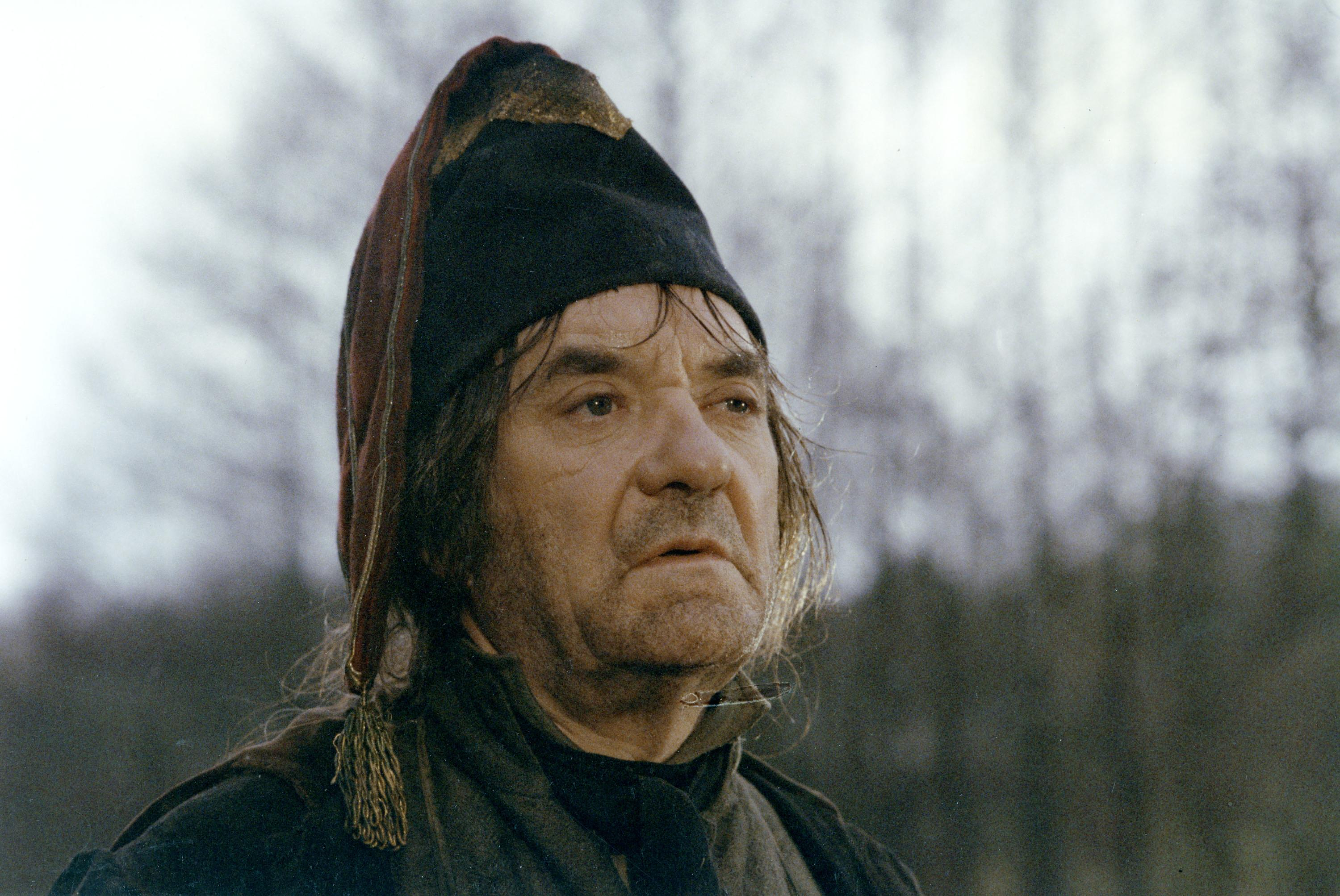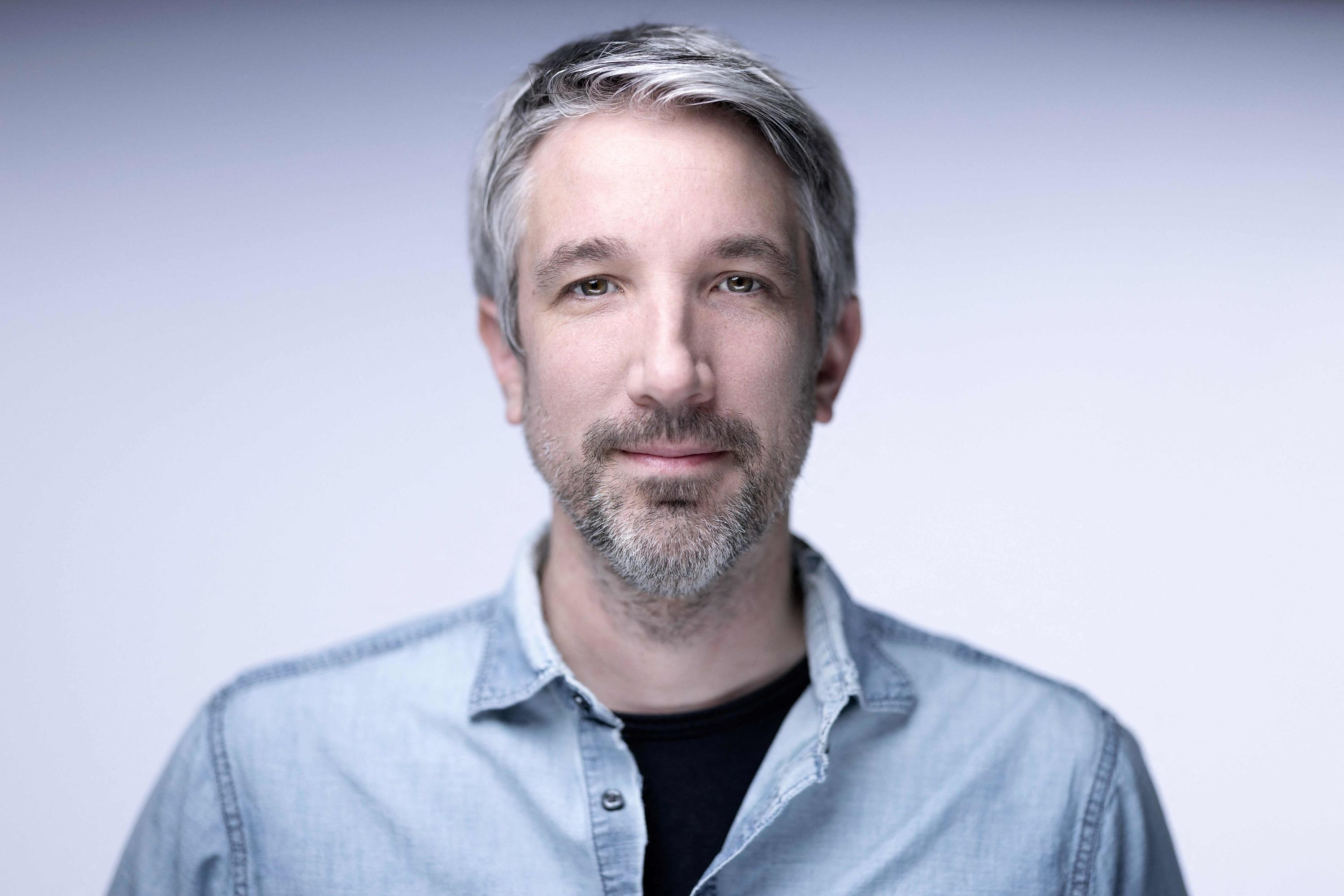Having died 30 years ago, Jean Carmet left the image of a great actor but also of a bon vivant. His love of his native Touraine and the wines associated with it are part of his legend. The images that Madelen invites you to discover or rediscover are particularly moving. He returns to the school of his youth, in Bourgueil, and shows that the adult he has become remains more than ever a child who, until his departure, carefully cultivated his thirst for life.
He left his mark on cinema, in particular with Dupont la joie, but also on television for four decades. A young actor then at the head of a cabaret under the “Pot-au-feu” brand, he regularly participated in La Boîte à sel, the first singer-songwriter show in the history of the small screen. He then gave the reply to his friend Pierre Tchernia with whom, far from the cameras, he laughed a lot, particularly during the “Cake Game”, which they had invented. They would spot a pastry shop with an unappealing storefront, go in and order éclairs, tarts or rum babas which they would enjoy in front of the boss, congratulating her on the quality of her work. They didn't think a word about it, had great difficulty finishing the parts, but they managed to do so for the pleasure of seeing the face of their interlocutor, not understanding what was happening to her.
Passionate about what he called his “Bondieuseries”, Carmet did not fail to show the friends he received, a country confessional, acquired at a high price, of which he was particularly proud. The sound of trains on the rails also made him dream. It marked his childhood so much that between two film shoots, he regularly went to the Saint-Lazare station, where, after shaving in the toilets, he bought tickets for anywhere, boarding of the first departing car. This eternal wanderer drove directors crazy by taking advantage of a break during filming to knock on a stranger's door, attracted by the smell of cooking coming from an open window. Each time, he was recognized and welcomed with open arms, like a family friend. He shared a leg or a saddle of hare, starting a conversation, which continued until an assistant managed to find his trace. He then returned, almost with regret, to the plateau.
Francis Blanche was also her friend, despite a prank which, for Carmet, turned into a nightmare. One day in the 1960s, Blanche announced on the radio that he had found a doctor who could make any hiccup disappear. In the process, he gives Carmet's phone number. For two months, in a time when answering machines did not exist, the ringtone rang day and night, and every time he picked up, he heard a “Hello, doctor,” followed by a “hiccup.”
In Bourgueil, the actor evokes Michel Audiard. Their total brotherhood only experienced a temporary fracture when the dialogue writer accepted the Legion of Honor, which, in Carmet's eyes, was not admissible from a right-wing anarchist.
This fantasy should not make us forget the immense actor that he was, well beyond the supporting roles that were entrusted to him. Césars have rewarded him for Les Misérables and Merci pour la vie. There is also a mini-series, in which he has the leading role and in which he proves exceptional: The double life of Théophraste Longuet. Three episodes directed by Yannick Andréi which deserve to be rebroadcast today.

 Finding yourself face to face with a man or a bear? The debate that shakes up social networks
Finding yourself face to face with a man or a bear? The debate that shakes up social networks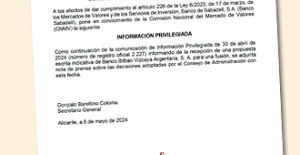 Sabadell rejects the merger with BBVA and will fight to remain alone
Sabadell rejects the merger with BBVA and will fight to remain alone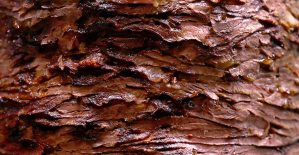 In Germany, the far left wants to cap the price of “doner kebabs”
In Germany, the far left wants to cap the price of “doner kebabs” Israel-Hamas war: Gaza between hope of truce and fear of Israeli offensive in the South
Israel-Hamas war: Gaza between hope of truce and fear of Israeli offensive in the South The presence of blood in the urine, a warning sign of bladder cancer
The presence of blood in the urine, a warning sign of bladder cancer A baby whose mother smoked during pregnancy will age more quickly
A baby whose mother smoked during pregnancy will age more quickly The euro zone economy grows in April at its best pace in almost a year but inflationary pressure increases
The euro zone economy grows in April at its best pace in almost a year but inflationary pressure increases Children born thanks to PMA do not have more cancers than others
Children born thanks to PMA do not have more cancers than others “The prices are astronomical”: to enjoy the Olympics with family, Sabrina spent... 8,000 euros
“The prices are astronomical”: to enjoy the Olympics with family, Sabrina spent... 8,000 euros “House of the Dragon”, “Succession”… Max, the new streaming platform from HBO and Discovery, launched in France on June 11
“House of the Dragon”, “Succession”… Max, the new streaming platform from HBO and Discovery, launched in France on June 11 The A13 motorway will finally reopen this Friday, in one direction only
The A13 motorway will finally reopen this Friday, in one direction only TNT commission of inquiry: tensions between LFI deputies and Macronists before the vote on the report
TNT commission of inquiry: tensions between LFI deputies and Macronists before the vote on the report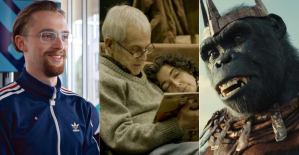 The Coubertin Spirit, Eternal Memory, Planet of the Apes... Films to watch this week
The Coubertin Spirit, Eternal Memory, Planet of the Apes... Films to watch this week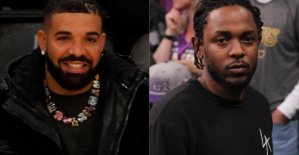 Rappers Drake and Kendrick Lamar vie for the spotlight
Rappers Drake and Kendrick Lamar vie for the spotlight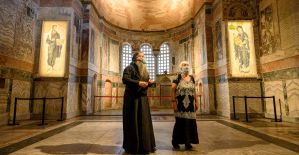 In Istanbul, the ancient Byzantine church of Saint-Sauveur-in-Chora reopens for Muslim worship
In Istanbul, the ancient Byzantine church of Saint-Sauveur-in-Chora reopens for Muslim worship David Castello-Lopes: a fresh wind blows on the one-man show with his show Authentique
David Castello-Lopes: a fresh wind blows on the one-man show with his show Authentique Omoda 7, another Chinese car that could be manufactured in Spain
Omoda 7, another Chinese car that could be manufactured in Spain BYD chooses CA Auto Bank as financial partner in Spain
BYD chooses CA Auto Bank as financial partner in Spain Tesla and Baidu sign key agreement to boost development of autonomous driving
Tesla and Baidu sign key agreement to boost development of autonomous driving Skoda Kodiaq 2024: a 'beast' plug-in hybrid SUV
Skoda Kodiaq 2024: a 'beast' plug-in hybrid SUV The home mortgage firm rises 3.8% in February and the average interest moderates to 3.33%
The home mortgage firm rises 3.8% in February and the average interest moderates to 3.33% This is how housing prices have changed in Spain in the last decade
This is how housing prices have changed in Spain in the last decade The home mortgage firm drops 10% in January and interest soars to 3.46%
The home mortgage firm drops 10% in January and interest soars to 3.46% The jewel of the Rocío de Nagüeles urbanization: a dream villa in Marbella
The jewel of the Rocío de Nagüeles urbanization: a dream villa in Marbella Institutions: senators want to restore the accumulation of mandates and put an end to the automatic presence of ex-presidents on the Constitutional Council
Institutions: senators want to restore the accumulation of mandates and put an end to the automatic presence of ex-presidents on the Constitutional Council Europeans: David Lisnard expresses his “essential and vital” support for François-Xavier Bellamy
Europeans: David Lisnard expresses his “essential and vital” support for François-Xavier Bellamy Facing Jordan Bardella, the popularity match turns to Gabriel Attal’s advantage
Facing Jordan Bardella, the popularity match turns to Gabriel Attal’s advantage Europeans: a senior official on the National Rally list
Europeans: a senior official on the National Rally list These French cities that will boycott the World Cup in Qatar
These French cities that will boycott the World Cup in Qatar Ligue 1: at what time and on which channel to watch the Multiplex on Sunday?
Ligue 1: at what time and on which channel to watch the Multiplex on Sunday? PSG-Dortmund: Hummels’ (big) tackle to “teams who wanted to play against” BVB
PSG-Dortmund: Hummels’ (big) tackle to “teams who wanted to play against” BVB Top 14: Pierre Bochaton extends with UBB until 2027
Top 14: Pierre Bochaton extends with UBB until 2027 Tennis: Monfils beaten, Atmane surprises and advances to the 2nd round in Rome
Tennis: Monfils beaten, Atmane surprises and advances to the 2nd round in Rome